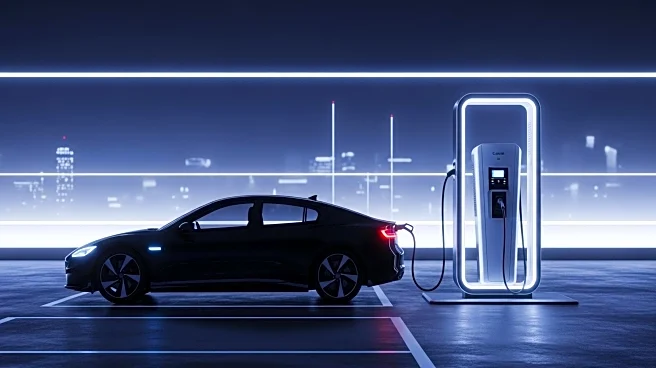What's Happening?
Ford Motor CEO Jim Farley has expressed concerns that the demand for all-electric vehicles will significantly decrease following the expiration of federal tax incentives. Farley anticipates that EV sales could drop from a market share of 10-12% to around 5% as the $7,500 consumer incentive ends. This change is expected to impact the auto industry, including Ford, which will need to adapt its strategies regarding battery plants and EV production capacity. Farley highlighted the importance of partial electrification, such as hybrids, as a more acceptable option for consumers during this transition.
Why It's Important?
The anticipated decline in EV sales due to the end of federal tax credits is a critical issue for the automotive industry. This policy change could slow the adoption of electric vehicles, affecting manufacturers' plans and investments in EV technology. Companies like Ford may need to reassess their production strategies and focus more on hybrid models, which are perceived as more consumer-friendly. The shift could influence market dynamics, impacting suppliers, dealers, and consumers, while also affecting environmental goals related to reducing emissions.
What's Next?
Ford and other automakers will likely need to adjust their strategies to accommodate the expected drop in EV sales. This could involve increasing the focus on hybrid vehicles and exploring new incentives or pricing strategies to maintain consumer interest in electric models. The industry will be closely monitoring sales figures and consumer behavior in the coming months to determine the best course of action. Additionally, discussions around new policies or incentives to support EV adoption may emerge as stakeholders seek solutions to sustain the growth of electric vehicles.









